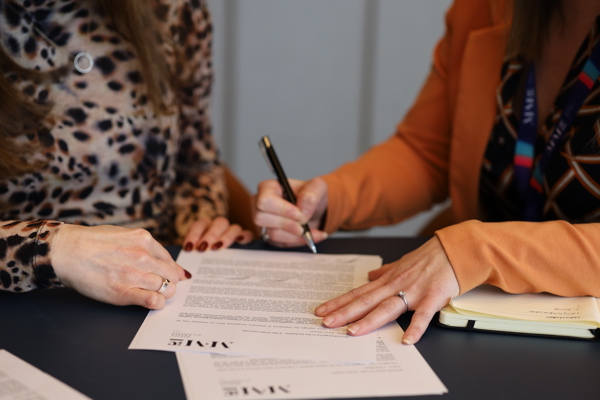Understandably, there has been a lot of media attention recently around Brooklyn Beckham and Nicola Peltz and their glamorous, star-studded nuptials. Beautiful people in a beautiful location making beautiful promises to each other… it was bound to sell a few stories.
Within hours of them promising to stay together forever, the media was reporting on what would happen in the event of their divorce and what might be in their pre-nuptial agreement. There was bound to be a lot of interest in their financial arrangements given Brooklyn’s personal net worth (believed to be in the region of $10 million) is somewhat dwarfed by that of his new wife, Nicola Peltz, who is believed to have assets worth five times as much. The fact that they would both benefit from a pre-nup was big news.
In reality, there should always be something in a pre-nuptial agreement for both parties. While it is often the case that the agreement is led by one party who has more assets to ringfence, either of their own making before the marriage or in the form of generational wealth they are trying to protect for future generations, an agreement which seeks to protect only one party and leave the other with nothing is unlikely to stand up to challenge.
The position in Scotland
In Scotland, we have a very strict definition of matrimonial property which means that most assets owned prior to marriage or those acquired through inheritance or gifts from others are naturally protected by our law and do not form part of the “pot” available for division between spouses on divorce. In the main, pre-nups in Scotland are used to ensure that those assets that are naturally excluded continue to be protected if they are changed in some way or reinvested in a different type of asset.
When marrying someone with considerable wealth, it can be difficult to create new wealth that is not connected to the wealth they had before marriage. It can be difficult to create new wealth that can be shared between the spouses in the event of divorce. This is where a pre-nuptial agreement can be used to protect the spouse with less wealth of their own. It can be used to ensure that in the event of divorce, after a life together where they have both made contributions to the family in different ways, one spouse does not ride off into the sunset with everything while the other has to start again with nothing.
Why enter into a pre-nup?
Pre-nups are not just for the super wealthy, of course. People use them for many different reasons: to protect an asset of particular importance to them, to ensure assets are protected for children of a previous relationship, to protect a family business, or simply to reduce the scope of disagreements (and resulting legal expense) in the event of separation and divorce.
In this case, we can be confident that neither party will be left financially vulnerable in the event of separation but like all other newlyweds, they will be hoping they never have to look at their pre-nuptial agreement again and that their marriage will continue to be the fairytale they always imagined.
How can we help?
Morton Fraser MacRoberts' specialist Family Law team can explain how pre-nups work, prepare and draft the agreement and support you through the process.


